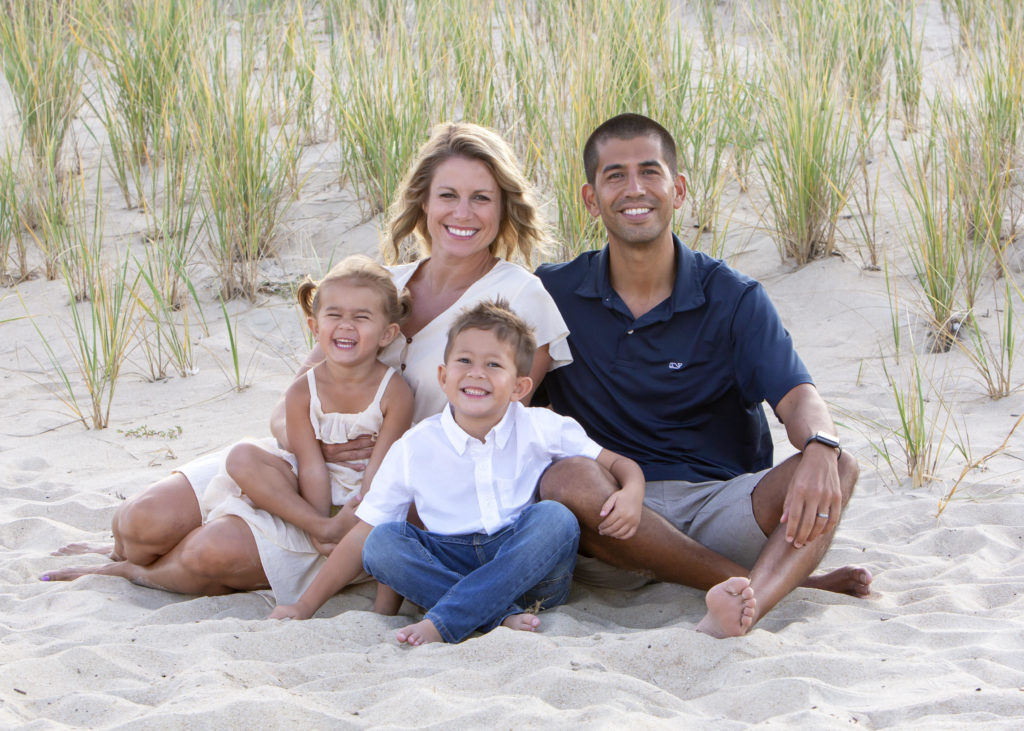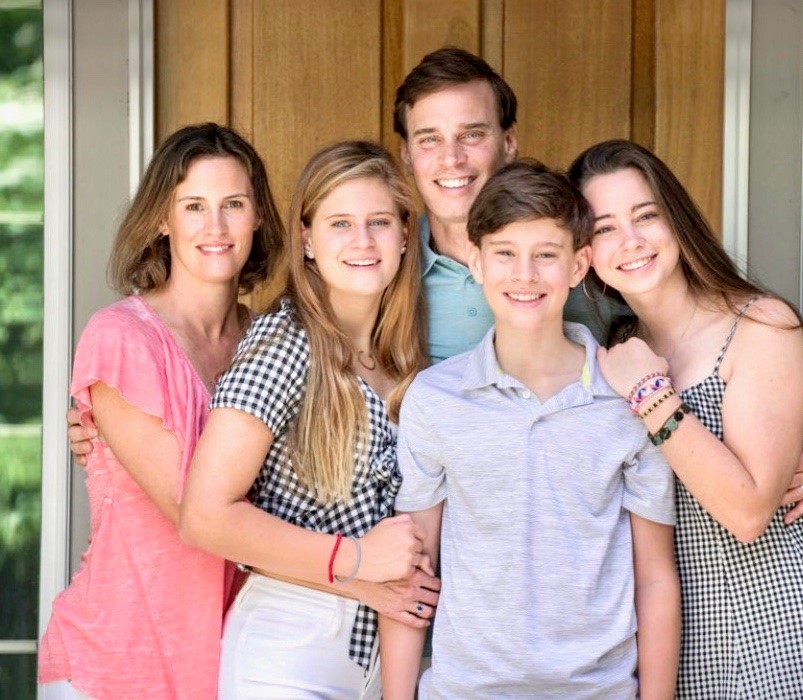
As we celebrate our fathers on Father’s Day, some dads are celebrating a life they’ve regained. These men are those who have conquered substance use disorders. Their numbers are many, yet they often go unnoticed. The Recovery Research Institute reports that one in 10 American adults are in recovery from significant substance use disorders, and an estimated 42% to 66% will achieve full remission. Fathers in recovery are unsung family heroes deserving of a spotlight.
Greg Hobelmann (MD, MPH) from Towson and Alex Denstman (MBA) from Havre de Grace are joint CEOs of Ashley addiction treatment in Havre de Grace (ashleytreatment.org). These men tackled their own substance use disorders and now help others find the path to recovery. Both are husbands and fathers who have struck a successful balance among career, family and sobriety.
‘Recovery Is Central’
Drinking was a part of teen culture for Hobelmann, and it continued into college, where he experimented with drugs. He went on to medical school and was an achiever.
“I went through residency in anesthesia and a fellowship in pain medicine. Life was good, but I was drinking heavily, and it started escalating. I added sleeping pills and pain pills,” he recalls. “Within a couple of years, I was fully addicted without having any idea. I lost my job and had shame surrounding the addiction. Treatment in 2009 was eye-opening: ‘Hey, I do have a substance use disorder.’ But when I came home, I kept it secret from the outside world and was kind of lost.”
After a relapse in 2011, Hobelmann reentered treatment and emerged wholly committed. He went back to school for a residency in psychiatry and returned to work at Ashley in 2016.
“It can be insidious,” cautions Hobelmann. “This affects pretty much everybody in some way, whether it’s a family member, friend, whatever. It can happen in any stage of life. Substance use in general is highest in the 18-25 age range, then usually levels out. In some cases, it escalates.” He further notes, “The earlier you start using, the more your risk of developing a substance use disorder. If there are psychological issues going on, it becomes a primary coping mechanism.”
“I had insecurities and inadequacies that I think many kids have. It started innocently,” explains Denstman. At 13, he began experimenting with drugs and alcohol. At 18, he was failing college and his parents sent him to Ashley in 2001.
“I had a hard time identifying. There weren’t as many young people in treatment. I struggled trying to stay sober.”
He was back for treatment in 2003. “I’ve really grown up in the 12-step fellowship,” he says. Denstman discovered himself, and his ambition, in recovery. He returned to college to pursue work in the field and have an impact on others.
“Everything has wrapped around my recovery, and it fits,” Denstman says. “My life is amazing today: relationships with my parents, sister, support system and friends. I had destroyed those things in active addiction. My wife is in recovery as well, and in terms of how we parent our kids, recovery is central.”
Denstman has been working at Ashley for 11 years, helping family systems rebuild. “There’s no joy in seeing people at their lowest, but I know how that patient can move from crisis to treatment to recovery. It’s rewarding. In the course of 28 days, you see the lights come on. I tell people, ‘You haven’t even scratched the surface of what life can offer.’ Good recovery doesn’t just change you with respect to drinking or drug use; it makes you a better person, spouse, father, employee and boss. It touches every level of your life.”

Evolving Response of Addiction Treatment
Addiction treatment has evolved in response to added prevalence, an opioid epidemic and increased attention. The Affordable Care Act broadened access to resources. “It’s no longer a thing that happens to other families,” says Denstman. “Addiction is a front-burner issue. Families are talking about it. We’re seeing the health care community and social support agencies mobilize.”
“On a societal level we’ve made strides, but there’s more we can do,” suggests Hobelmann. “The way we have conversations is important; the language we use. Stress the resilience. When somebody asks me, ‘Oh, you’re not having a drink?’ I’ll say, ‘Well, I’ve been sober for many years instead of saying, ‘I’m an alcoholic.’ It changes the tenor of the conversation. We can be proud of our recovery rather than ashamed of our disorder. The trend was that when someone is in good recovery, they don’t talk about it. If we can be more open, we can emphasize the recovery piece.”
“There’s a movement. It’s more mainstream. Prominent figures and celebrities are open about recovery,” says Denstman. “There was a time in early recovery when you’d still feel like a leper of sorts. Hopefully, there’ll come a day when addiction is spoken of the way cancer or heart disease is—as something that happens, an illness that’s treatable, not a reflection of the person.”
“Greg and I are ‘comfortably sober.’ We’re not grinding out the days,” Denstman says. “Good recovery isn’t swearing off drink every day. It’s living life. People get sick; pandemics occur. We make sacrifices. Things get turned upside down, but recovery gives you this gift of perspective, of ‘I’ll get through this.’”
New Perspectives on Parenthood
“The best part of my recovery (aside from not using substances) is being a parent,” says Hobelmann. “I’ve been able to raise my kids, be open with them, and model good behavior. I have a deeper presence for my kids, strengthening our overall relationship and comfort with each other. Recovery has taught me ways of thinking and tools that I can share with my kids when they are struggling with any issues.”
Hobelmann’s wife continues to drink, sensibly. “The kids see how it can be done responsibly, and they see a wonderful life without drinking at all. Recovery has also been beneficial for our marriage. It was great beforehand, but going through difficult times and recovering well strengthened us.”
“My role as dad is different than anything I’d experience if not in recovery,” Denstman explains. “Being present, understanding what my time means to my kids, I couldn’t imagine being a parent in active addiction. I can call on my experiences as a kid who wasn’t quite comfortable in my own skin and be aware and uplift my kids. I can’t predict what they might deal with later in life from an addiction standpoint, but my wife and I try to exemplify good values in ways they can understand.”
Ashley soon plans to open an Adolescent Clubhouse to engage and support high-risk youth. Hobelmann and Denstman are working daily not only to help patients succeed, but also to change hearts and minds and improve the narrative around addiction.
They lead by example, as model fathers in recovery.









